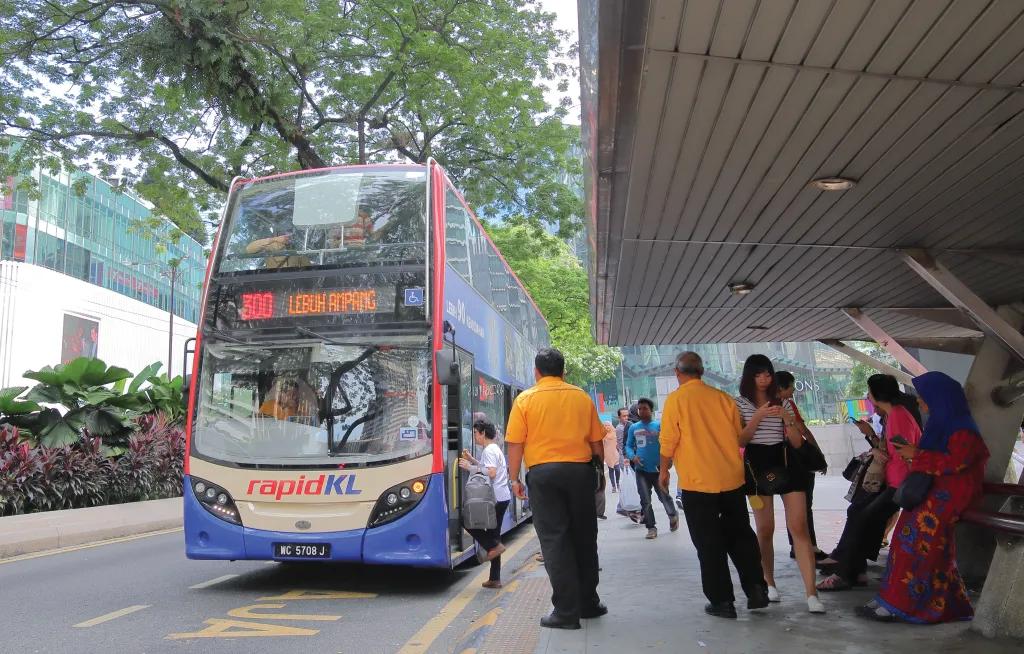Advancing Bus Travel: Predicting Travel Time and Improving Service Reliability
Dr. Khoo Wooi Chen from the School of Mathematical Sciences at Sunway University, Prof. Ir. Dr. Khoo Hooi Ling from UTAR, and PhD student Victor Low Jian Ming, an alumnus of the School of Mathematical Sciences at Sunway University worked together in a project that collaborated with RapidKL over a period of three years to investigate bus section travel time and develop models that could predict bus section travel time with point and interval estimations.
With the support of a Fundamental Research Grant Scheme grant, the project reached its final stage, and the team accomplished several feats. Their first conference paper, which examined bus section travel time using Burr distribution, received the Best Paper Award at the 16th IMT-GT International Conference on Mathematics, Statistics, and their Applications (ICMSA 2020). Additionally, in October 2022, they received the Second Runner-Up Award for Best Technical Paper at the 11th Malaysian Road Conference & Exhibition 2022 and the 4th International Road Federation Asia-Pacific Regional Congress.
The team improved their conference paper and submitted it to a WoS Journal, where it was published in Transportmetrica A: Transport Science. Their novel mixture time series model, and the Burr mixture autoregressive (BMAR) model, enabled them to predict bus section travel time with point and interval estimations. The BMAR model yielded promising results in travel time prediction, particularly with the high degree of variability and irregular patterns observed in urban roads and highways. The reliability ratio index obtained from the BMAR model could measure bus service reliability and help schedule maintenance activities.
They also published an article in the International Journal of Transportation Science and Technology, indexed in WoS and Scopus Q1. The study quantified bus travel time variability and identified spatial and temporal factors using the Burr distribution model. The study analysed five operating environments of bus section travel time, examined the statistical characteristics of bus section travel time, and assessed the impact of spatial-temporal factors on the variation in bus section travel time using a Burr regression model. The study found that all bus section travel times were well-suited to the Burr distribution model.Their Burr regression analysis also revealed that these factors caused higher travel time variability on weekends in suburban and residential areas but less during weekdays. Conversely, the impact was observed inversely in the Central Business District.
The team's discussions offered insights on improving bus travel time scheduling and planning in the future. They recommend implementing a better plan with a sustainability framework that benefits the community and preserves resources. Finally, the team is proud to announce that their PhD student, Jian Ming Victor Low, will complete his study in March 2023.
Dr Khoo Wooi Chen
School of Mathematical Sciences
Email: @email
This article has been adapted from the original story found on our School’s LinkedIn Page.




